QUICK LINKS
Follow: Twitter | Instagram | Telegram | Truth Social | Podcast Membership|
Broadcasts: Rumble| HappyHour |This Wk wDrT | Brighteon | Bitchute | Tues Coffee
Learn about ECP: Health Center Cleveland, OH | Health Center Ventura, CA
Websites: DrTenpenny.com |Tenpenny Apparel| Tenpenny Supplements
Inflammation has been shown to play a major role in most chronic illnesses, including neurodegenerative, cardiovascular, pulmonary, metabolic, autoimmune and neoplastic (cancer) diseases.
For centuries it has been known that turmeric exhibits anti-inflammatory activity, but extensive research performed within the past two decades has shown that the activity of turmeric, a member of the ginger family, is due to curcumin. Turmeric comes from the root of a perennial plant that is difficult to grind; hence, it is usually sold as a powder. Curcumin, the active component of turmeric, is what gives turmeric its yellow hue.
Curcumin: A Big Deal
Curcumin is a powerfully rich antioxidant and anti-inflammatory that positively affects every organ in the body. Curcumin has been found to be protective against more than 70 conditions, including type 2 diabetes, Alzheimer’s disease, and cancer. Studies have shown that curcumin is more effective in reducing inflammation than aspirin and ibuprofen, more effective in suppressing breast cancer recurrence than tamoxifen, and is more potent than Vitamin C or Vitamin E as an antioxidant. Its effects on cardiovascular disease (CVD) are profound.
Is it any wonder that the American diet, loaded with sugar and salt and lacking in nature’s herbs and spices, has perhaps the highest incidence of CVD in the world?
(table from PMID: 30423840)
More on Curcumin
Comprehensive research suggests curcumin’s effects against CVD take place through several different mechanisms, but primarily through the modulation of a cytokine called NF-kB (pronounced NF-kappa-beta.) NF-kB activation is a major mediator of inflammation in most chronic diseases (including cancer), and inhibition of NF-kB can prevent or resolve many chronic diseases.
Reference: Kumar A, Takada Y, Boriek AM, Aggarwal BB. Journal of Molecular Medicine 2004;82:434-48.
Curcumin has strong artery-protecting effects. Atherosclerosis is characterized by vascular inflammation and lipid accumulation within the vessel wall. It has been shown in animals to lessen fatty plaques, lower LDL (bad; inflammatory) cholesterol, and helps regulate blood pressure. It can reduce the size of blood clots after a hemorrhagic stroke and can improve circulation in the brain after a stroke or traumatic brain injury.
A long list of conditions have been successfully improved by using 500-1000mg of curcumin per day:
Colitis and Crohn’s disease
Cystic fibrosis
Diabetes, type 2
Eye problems – conjunctivitis, dry eyes, macular degeneration, post-op cataract care
Pain, particularly osteoarthritis
Dosages can vary, but it is a non-toxic spice/herb with no reported side effects or toxicity.
Resveratrol
Resveratrol gained worldwide attention from epidemiological studies linking red wine consumption to the low mortality of the French population from cardiovascular diseases despite high intake of dietary cholesterol and saturated fats in comparison to other Western countries. This phenomenon was referred to as the ‘French Paradox.’
Red wine is the most important dietary source of resveratrol because it has high concentrations in grape skins. Resveratrol is a non-flavonoid polyphenol also found in a variety of berries and medicinal plants. The composition of resveratrol as a red wine extract has been shown to lower and even prevent inflammation, and thus, it can stave off major illnesses, especially cardiovascular diseases.
Resveratrol acts directly and indirectly to produce nitric oxide (NO), inhibit vascular inflammation, lowers blood pressure, and lowers the risk of blood clots by preventing platelet aggregation. In vivo (living animals or humans) and in vitro (laboratory) studies suggested that resveratrol has an array of health-promoting benefits.
Other benefits of resveratrol include:
Repair and improve endothelial dysfunction
Lower oxidative stress
Block NF-kB activation
Reduce inflammation
Inhibit platelet aggregation
Improve cardiac output (addresses congestive heart failure- CHF)
Reduce the size and frequency of atherosclerotic plaques
Decrease blood sugar and protect the pancreas from environmental stress
For these reasons and more, the evidence suggests that resveratrol has the potential to provide many health benefits.
Nitric Oxide
Nitric oxide (NO) is associated with many physiological processes, entailing immune modulation, neurotransmission, and vasodilation. This enables blood vessels to dilate and relax, increasing blood flow and oxygen delivery to tissues. This positively affects cardiovascular health, exercise performance, and cognitive function.
In fact, nitric oxide contributes to cognitive function, including learning, memory, and decision-making, particularly in tasks requiring attention and executive function. It increases neurotransmission and neurotransmitters. It helps tremendously in stroke and TBI recovery.
Nitric oxide is a critical signaling messenger within the cardiovascular system that exerts a plethora of biological effects. In the late 1980s, it was discovered that NO plays a crucial role in controlling blood pressure by relaxing smooth muscle cells in the walls of peripheral arteries. In fact, atherosclerosis, hypercholesterolemia, diabetes mellitus, congestive heart failure, and stroke have all been linked to low levels of NO.
Since hypertension is the number one risk factor for developing CVD, normalizing BP with NO is an important consideration. NO supplement appears to actively lower blood pressure, improve vascular compliance, and restore endothelial function in patients with hypertension.
CVD is one of the leading causes of death worldwide, which includes coronary artery disease, acute myocardial infarction, peripheral arterial disease, and stroke. CVD is responsible for more than 17% of US national health expenditures. As the population ages, these costs are expected to increase substantially from 2020 to 2030, when it is estimated that 40.5% of the US population is projected to have some form of CVD.
As far back as 2011, the growing cost of CVD was projected to be astronomical. Between 2010 and 2030, direct medical costs of CVD (in 2008 dollars) were projected to triple, from $273 billion to $818 billion. The indirect costs (due to lost productivity) for all CVD are estimated to increase from to at least $276 billion in 2030, an increase of 61%.
ECP and Nitric oxide
External Counter Pulsation (ECP) has been an FDA-approved therapy since 1995 for the treatment of refractory angina. This long-overlooked non-invasive medical device has been proven in published studies to address many types of heart disease, including hypertension, arrhythmias, cardiomyopathies, congestive heart failure (CHF), and myocarditis and pericarditis, both prevalent side-effects of the COVID-19 injections. Patients who are not candidates for angioplasty or stents, because they have exceedingly tiny or very curved vessels, can benefit from ECP. Patients who have hearts that are too weak for surgery may greatly benefit from ECP.
How It Works
In 1953, researchers discovered that coronary blood flow – the amount of oxygen delivered to the heart muscle itself – could be improved by as much as 40 percent when blood was moved back to the heart during diastole, the period when the heart relaxes and the heart chambers are filled with blood. The treatment was FDA-approved in 1995 as a treatment for coronary artery disease, angina, cardiogenic shock, and for use during a heart attack. In 2002, the FDA extended its use for congestive heart failure. It has undergone rigorous clinical trials at leading universities around the world resulting in more than 100 scientific studies published in leading medical journals.
ECP therapy uses wraps, similar to blood pressure cuffs, to improve blood flow. The cuffs are hydraulic and connected to your heart using a 3-lead EKG monitor. It is painless, noninvasive, and akin to passive exercise. In fact, your heart gets six times more oxygen during an ECP treatment than it would get by running on a treadmill for an hour! The treatment increases circulatory nitric oxide, which dilates all the arteries in the body. ECP also can stimulate the growth of new blood vessels around blocked arteries by increasing the production of vascular endothelial growth factor (VEGF). These new blood vessels, called collateral circulation, can greatly improve the function of the heart; it’s akin to promoting your own internal bypass surgery.
When researchers examined the effects of ECP on plasma nitric oxide during the course of ECP therapy (1 hour), plasma NO progressively increased. After 36 hours of ECP, there was a 62% ± 17% increase in plasma NO compared with baseline. Three months after completion of the full set of 35 ECP treatments, NO remained as much as 23% above baseline. The investigators concluded their data provided evidence to support the notion that ECP improves endothelial function, the area of blood vessels that continually synthesizes NO.
I suspect the elevated NO levels would have remained even higher if the subjects had either continued with maintenance ECP treatments every other week, or if they had been maintained on NO-producing supplements or both. Although genetic factors and aging are important in determining the overall cardiovascular risk, most of these diseases are preventable with lifestyle modifications, such as diet and physical exercise. Evidence from recent experimental studies, however, suggests dietary supplements can have a positive impact in slowing, even stopping, the development and progression of CVD.
Synergy
According to the available published literature, it can be concluded that curcumin treatment not only has anti-inflammatory and antioxidant effects but also has beneficial effects on cardiovascular diseases by increasing the bioavailability of nitric oxide.
If a person takes curcumin supplements before-during and-after a course of ECP treatments, a myriad of present and future health concerns could melt away. Given the growing numbers AND growing cost of heart disease, shouldn’t EVERYONE be doing ECP and taking heart-health supplements.
For more information, see www.TenpennyECP.com (Cleveland, Ohio) and/or www.ECPStudio.com (Ventura, California)

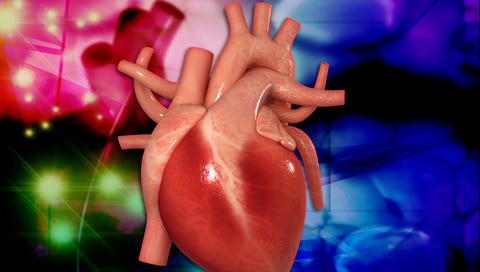



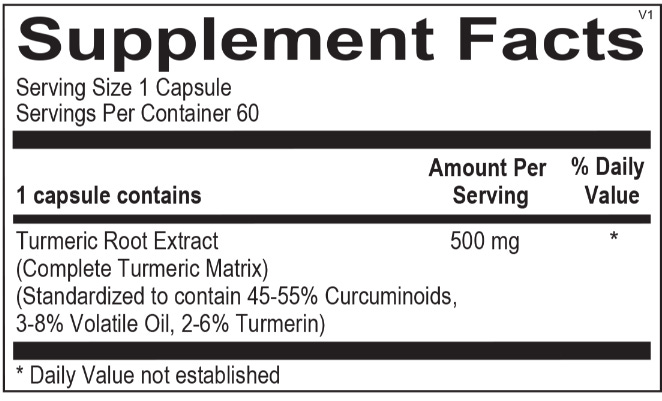
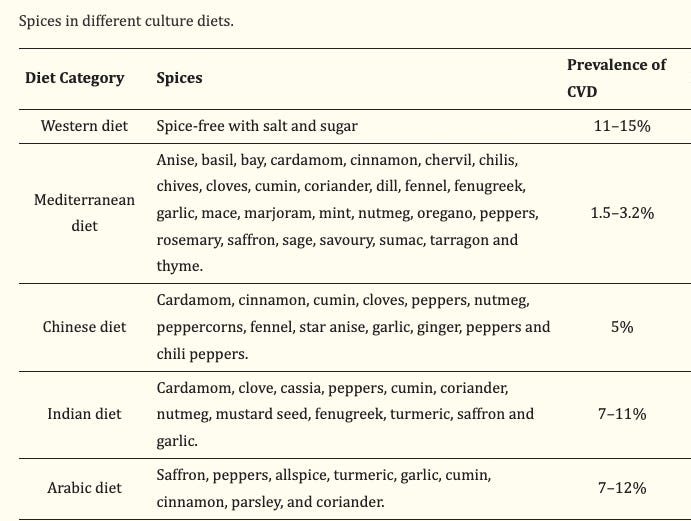
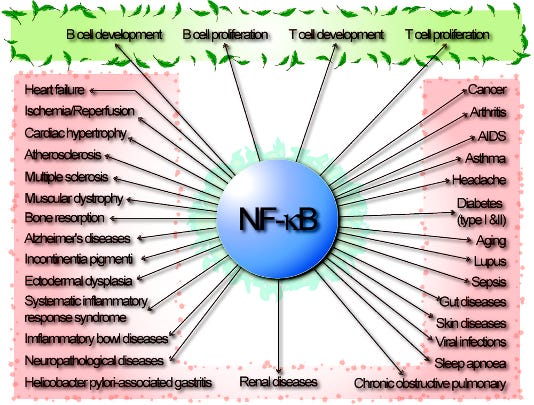
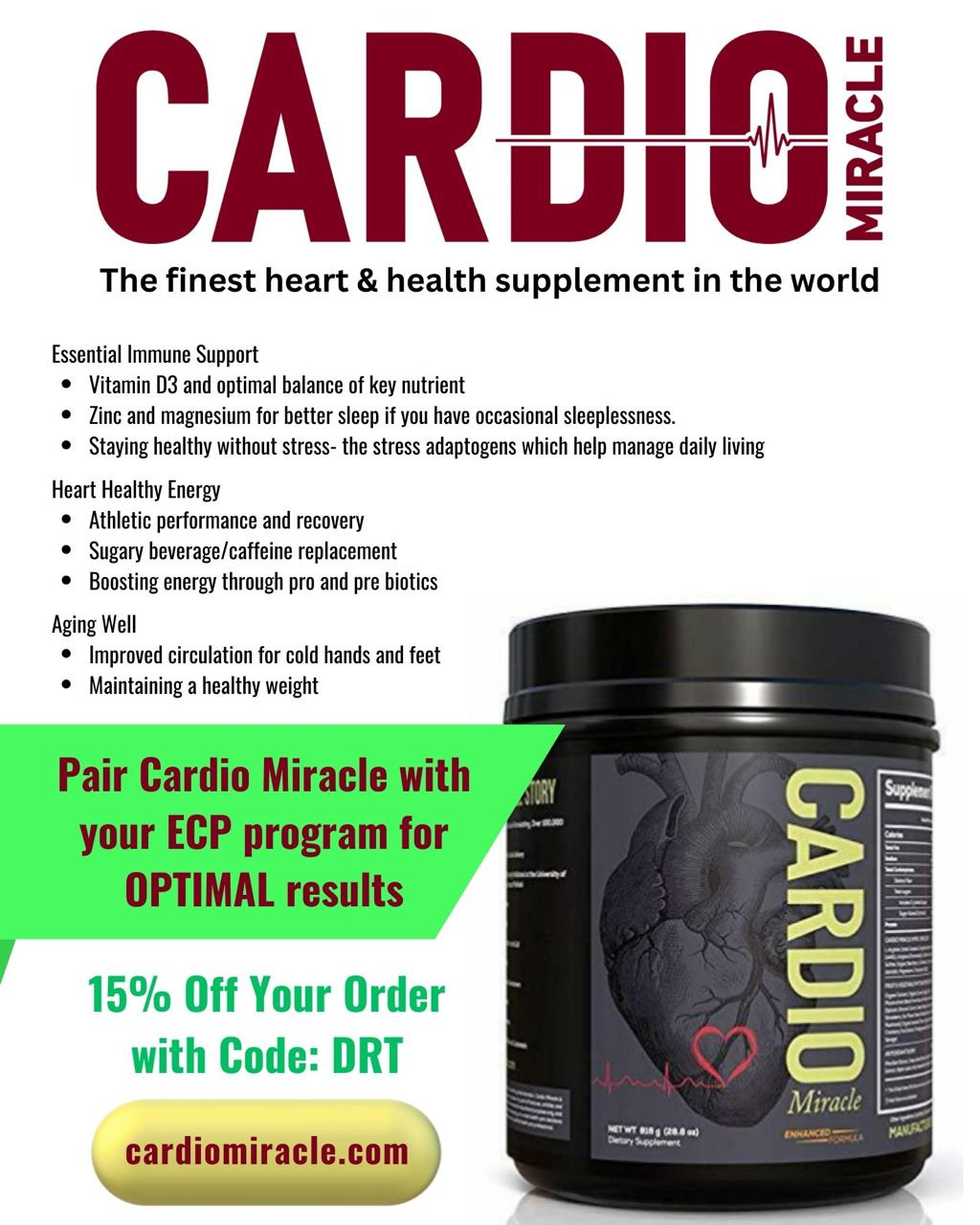
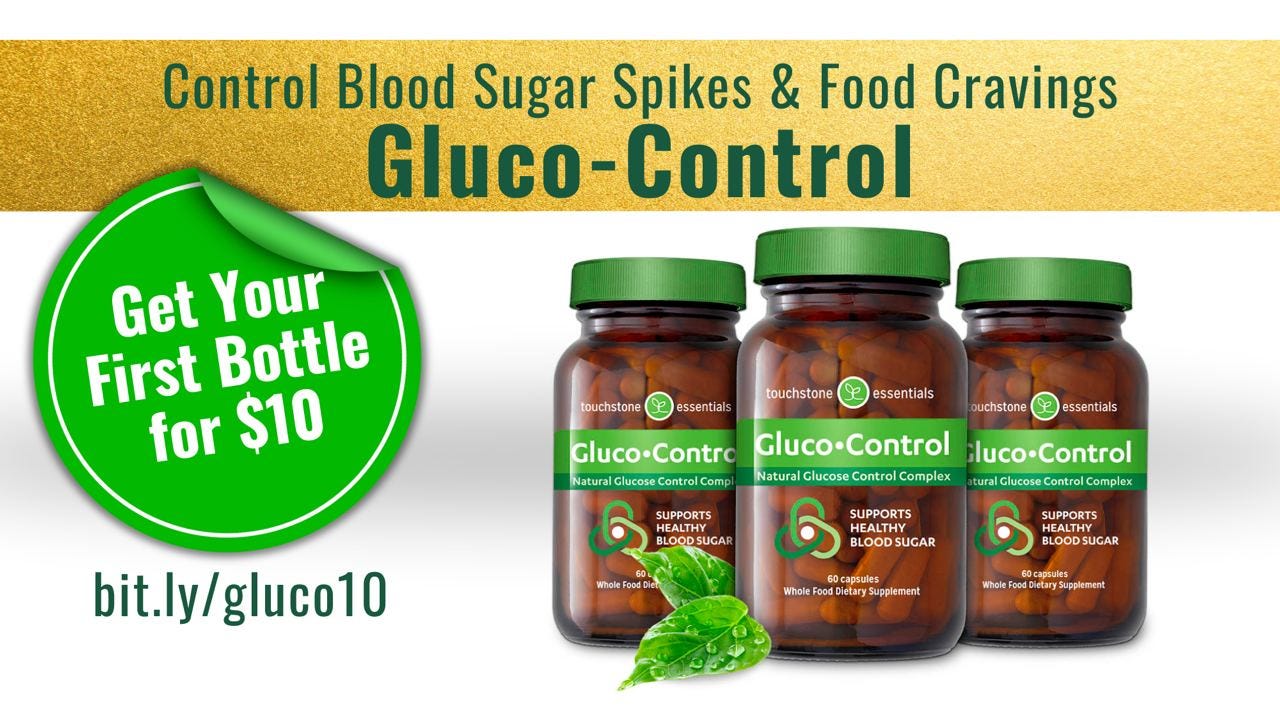
Thanks for sharing good Doctor. Here are a couple of minor additions to 🌽sider and for additional comments.
There is a study from India showing Black Pepper increases the uptake of Curcumin. Although black pepper may irritate some, so perhaps caution until your personal situation is known before going all in.
On Nitric Oxide, the nasal cavities contain cells that produce nitric oxide to sanitize the lungs. Studies early in the Plandemic showed deep diaphragmatic breathing sanitizes respiratory illnesses. To add additional spiritual components, use a Monastic prayer technique to it. In breath through the nose deeply, pray mentally “Jesus”. Out breath through mouth after filling all the lungs, “Mercy”.
The main ingredient we all need to live healthy productive lives comes from St Faustina's Diary;
Pure love is capable of great deeds, and it is not broken by difficulty or adversity. As it remains strong in the midst of great difficulties, so too it perseveres in the toilsome and drab life of each day. It knows that only one thing is needed to please God: to do even the smallest things out of great love — love, and always love.
(Diary 140)
🙏🙏🙏🙏, Make America Under God is Life Again, MAUGLA
One of my favorite supplements was designed by the late cardiologist, Dr. Stephen Sinatra (a great proponent of the Mediterranean and Asian diets, as well as grounding): https://www.healthydirections.com/products/heart-health/omega-q-plus-max
It includes essential fatty acids, CoQ10, turmeric, resveratrol, chromium, L-carnitine, B6, folate, and B12.